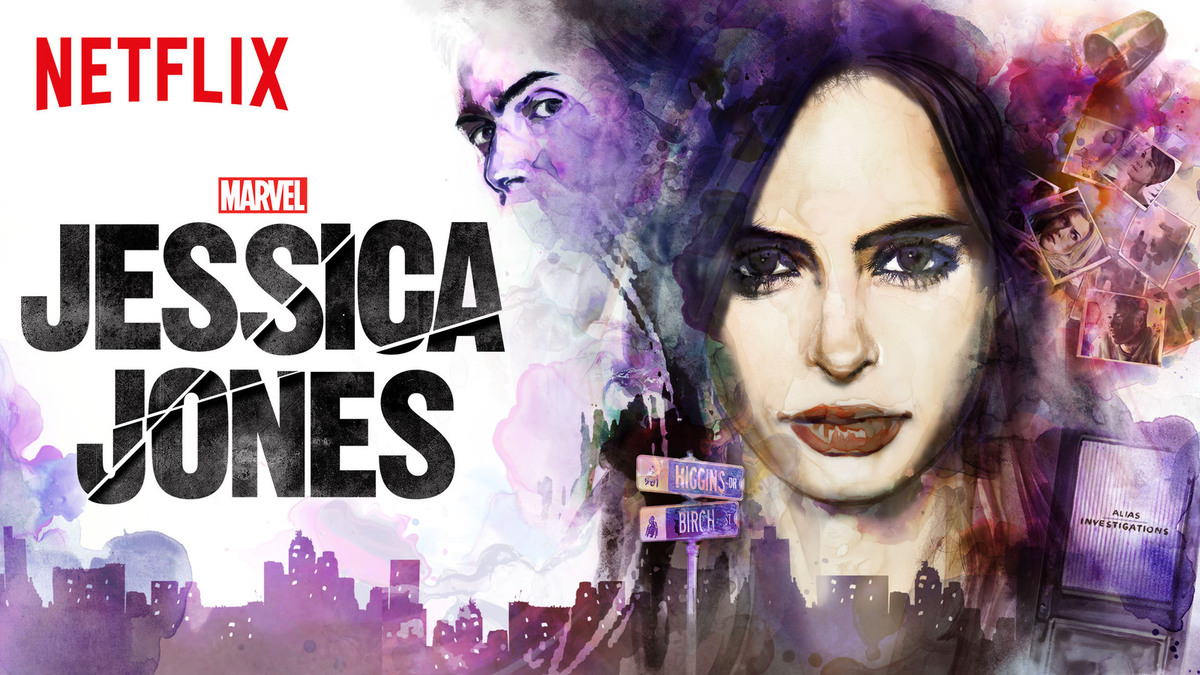
Abhishek Mehra
Staff Writer
The Marvel Cinematic Universe has been growing exponentially in the last decade. The latest addition to the ever-growing franchise is the Netflix TV series, Jessica Jones. The new series is Marvel’s first stand-alone female superhero project, and is also perhaps their darkest and humblest live action venture to date.
The show is packed with clichés: Jones is a troubled underdog, a snarky lone wolf who shuns human interactions and battles with the demons from her dark past (one vicious demon in particular). The first 20 minutes of the pilot seemed redundant, as nothing about it seemed original. It was just another show about an angsty young adult with a cynical approach to life (except that she has superhuman strength and can fly). On the surface, she seems to possess no empathy, but (surprisingly) she has depth and eventually succumbs to her morals. So far everything still seems passé. However, once the pace of the pilot picks up, the audience is hooked. The cause for her pain is partially explained; the audience immediately begins to root for this character. It’s hard to detach yourself from the screen for at least a few more episodes.
The show stars Krysten Ritter (you may recognize her as the best friend in various rom-coms) as Jessica Jones, the titular character. She is somber, but at the same time aggressive and tumultuous. Ritter packs a punch in a surprisingly layered performance for a comic book heroine. She does justice to the role, and highlights all of the complexities of her character. Jones suffers from PTSD as a result of the effects of her former tormenter, a man with mind control powers. The plot of the show kicks off with the return of the character that Jones had earlier presumed was dead: the enigmatic Kilgrave, played by the menacing David Tennant.
Kilgrave is the most frightening Marvel villain presented in a live action film or TV series to date. He is far less playful than the amiable Loki, and he lacks the physical stature to appear intimidating, but instead has the psychologically destructive properties of Hannibal Lector (minus the cannibalism). He’s not quite as fearsome as the DC villain extraordinaire, The Joker, but does share similar ideologies with him. His goals aren’t ambitious and far-fetched like other super villains. He doesn’t want to destroy the world, or even rule it; he wants to inflict pain onto others. He wants to ruin the humanity in people. Jones is the only person who can potentially challenge his powers, and so he makes it his mission to torment her. What ensues is a riveting and captivating plot.
The rest of the cast members also possess their fair share of complexities. Mike Colter plays Luke Cage, Jones’ husky-voiced, brooding love interest with his own set of super powers and emotional turmoil. Rachael Taylor is Trish Walker, Jones’ caring friend who is continuously snubbed by her. Erin Moriarty plays Hope Shlottman, Kilgrave’s newest victim who assumes the role of Jones’ protégé. It’s great to see Carrie-Anne Moss (better known as Trinity from The Matrix) take on another kick-ass, potentially iconic feminist role as Jeri Hogarth, Jones’ employer and unconventional maternal figure. All the characters are set up to support Jones’ narrative in her fight against the sinister Kilgrave.
This show has the makings of a superhero classic: a misunderstood hero, an antagonizing villain, an aversion for well-lit areas and a gripping narrative. It’s a much easier watch than its Netflix sister series Daredevil and way smarter than the CBS DC heroine-driven show Supergirl. The success of this show could be momentous in changing the perception of heroine-led franchises as unprofitable, because this show is one of the most encapsulating projects to come from the Marvel Cinematic Universe.










